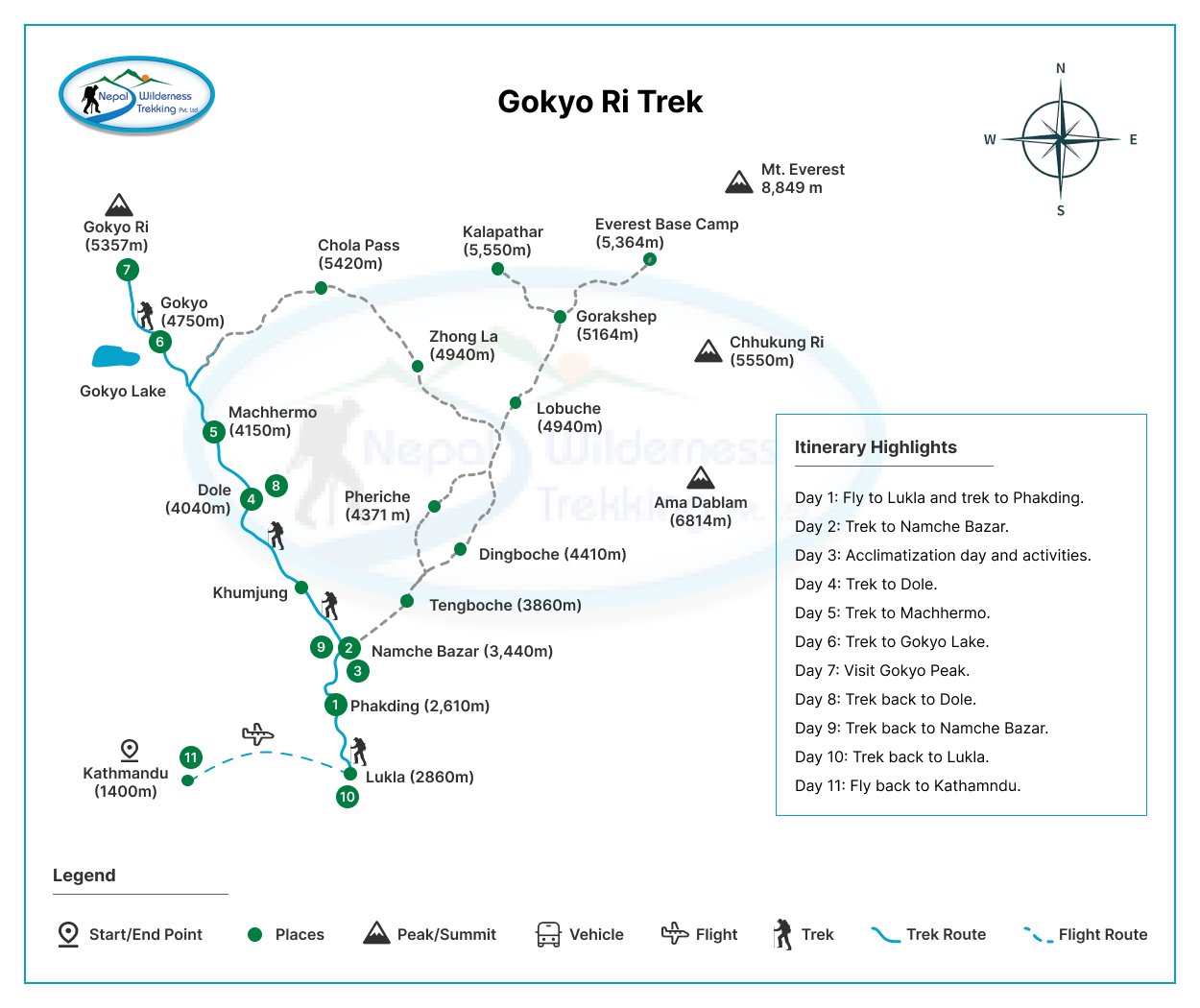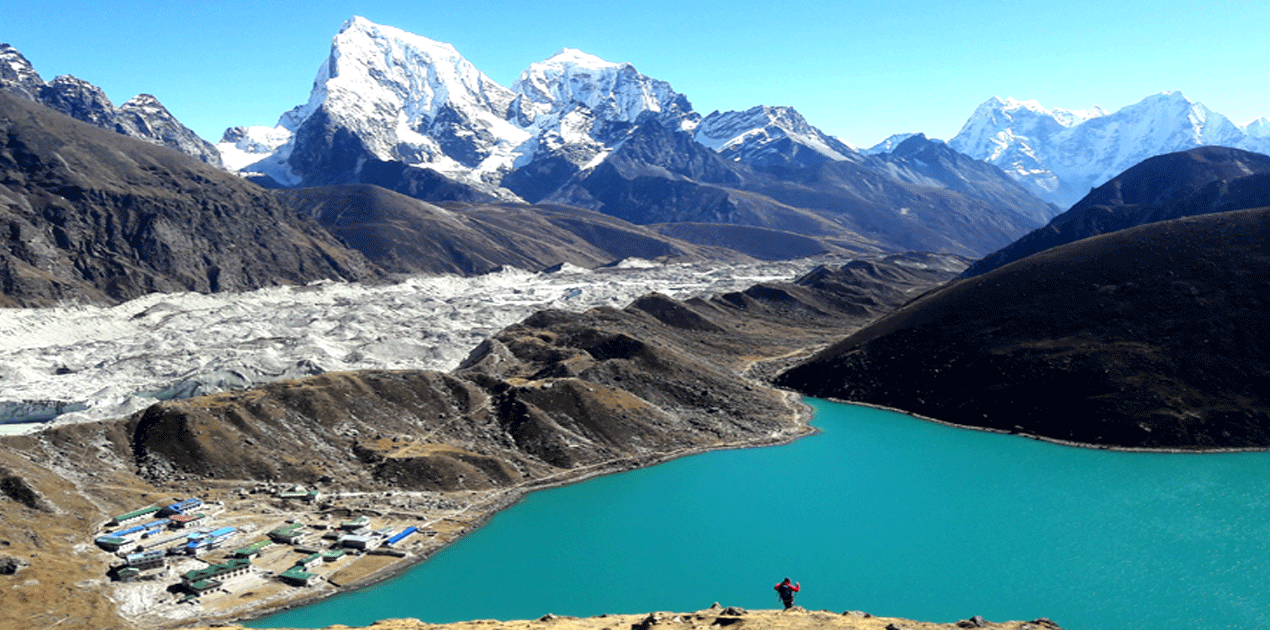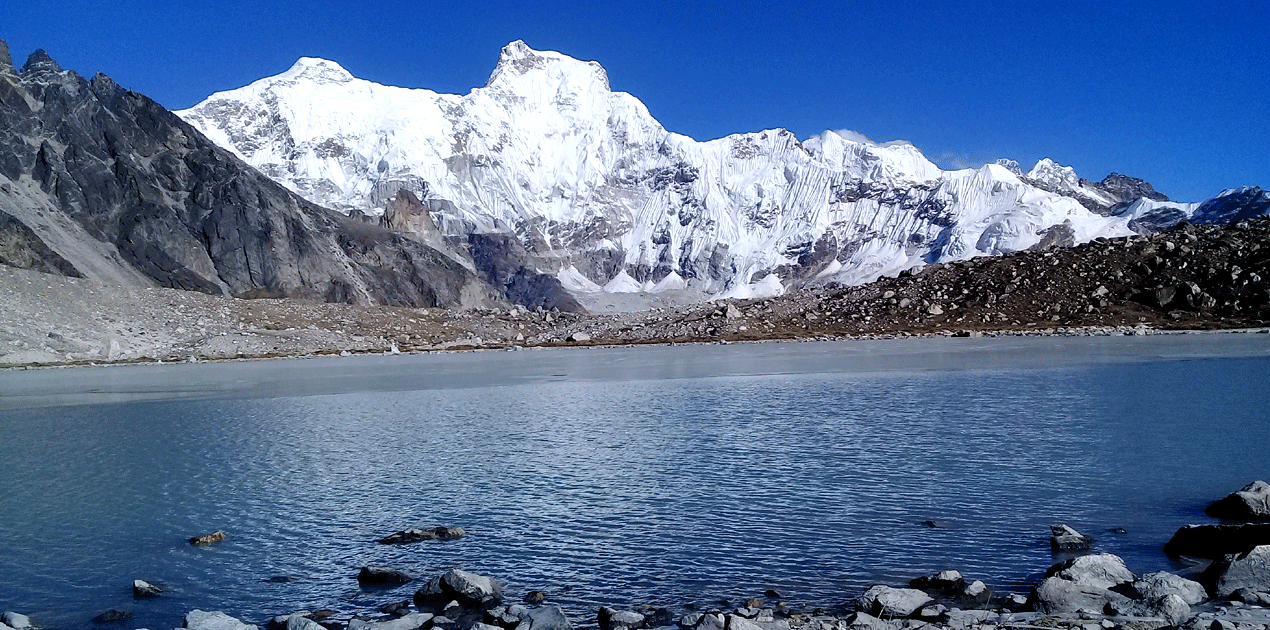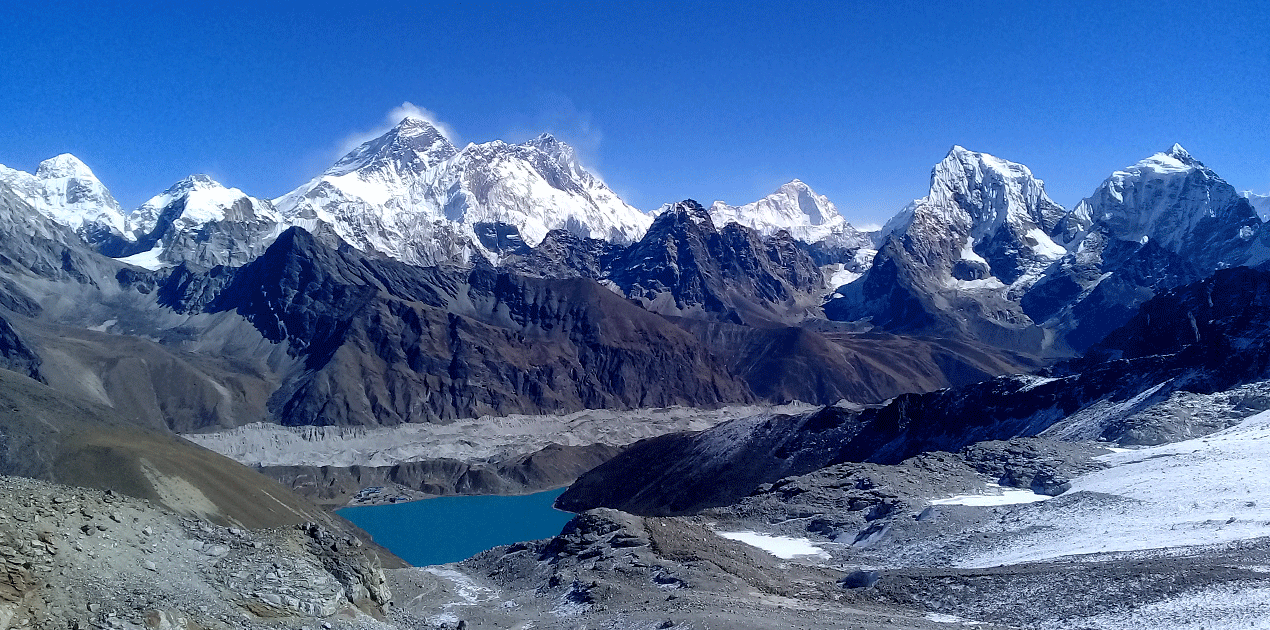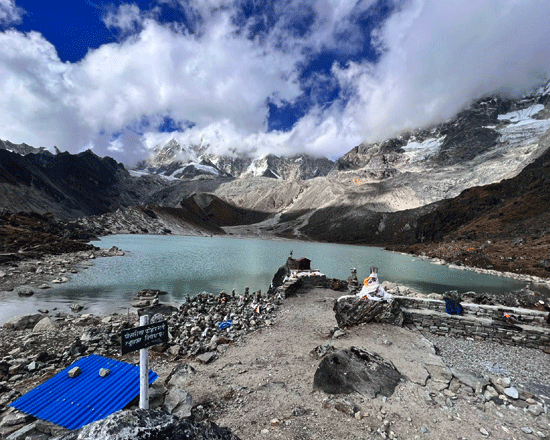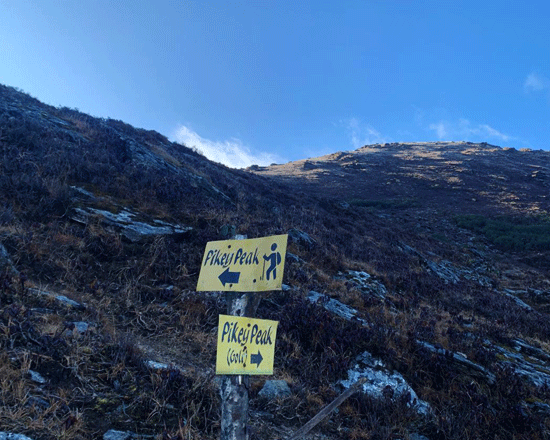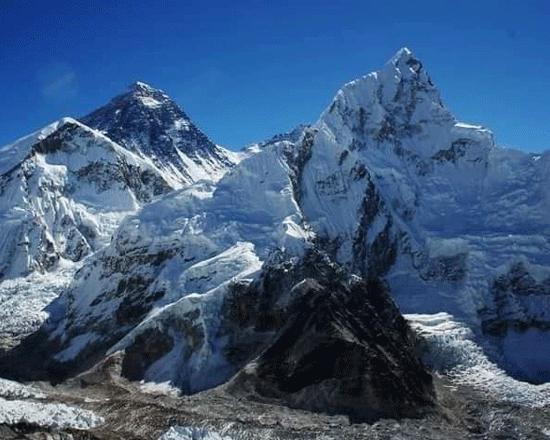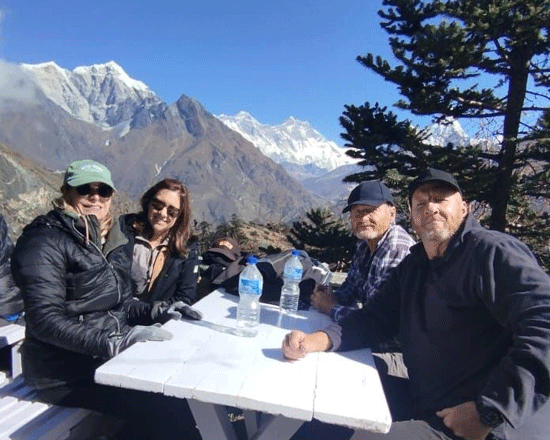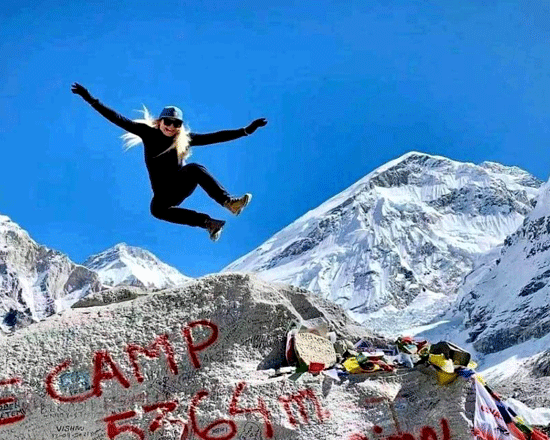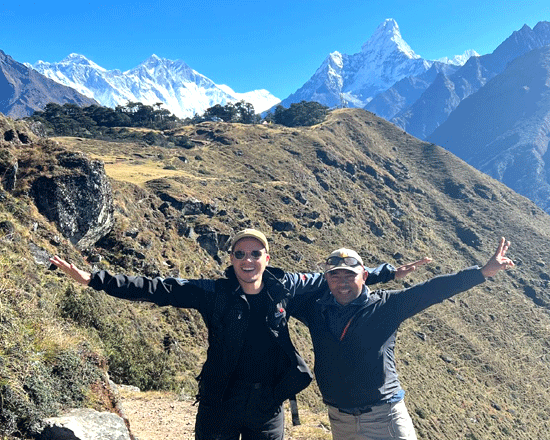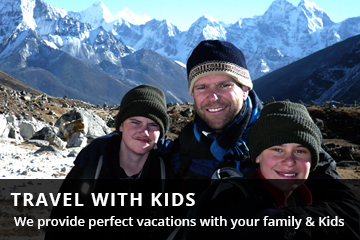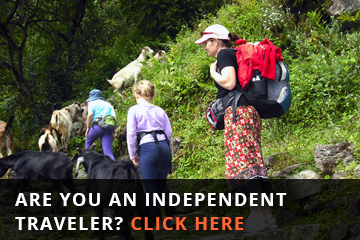Gokyo Ri Trek
Gokyo Ri Trek
Everest RegionTrip Facts
Since the terrain can be hard and the days long, hikers on these treks should be in good physical condition and have some previous mountain walking experience. Steep climbing may be involved, although it is never necessary to use ropes. Treks at this level can he arranged for periods of 16 to 21 days. Typically, a gradual ascent through a green river valley will lead you up to a number of high passes, where you will reach the altitude of 5416m. Often times, you will get a close insight into the Tibetan culture. Participants should expect to trek above 5416m/17872ft.
Mode of Travel : Flight/Hiking100%
Overview
Everest Gokyo Ri trek 11 days Package
The Gokyo Ri Trek is without a doubt one of the most beautiful treks in Nepal. The Gokyo Lake also known as the Thonak Lake confirms the mythical status of Gokyo Lakes as a heaven on earth and the most pristine pastures of Khumbu. The Everest Gokyo Ri trek rises 5,483 meters above sea level, thus standing between Everest base camp and Thame Valley. Located on the rim of the Everest region, the Gokyo Ri ridge is bound by Renjo La and Cho La passes and the 5,553m Ngozumpa Tse peak.
The Gokyo Ri Trek takes you to the highest point of the Gokyo trek during a moderate trekking trip in the high Himalayas of the Everest region. Consequently, trekkers choose this itinerary over the more commercial Everest trek to enjoy less crowded trails. Whether you are an experienced traveler or a novice, this can often be an excellent choice.
The Everest Gokyo Ri Trek is an 11-day moderate trek that has also been referred to as the Hidden Treasure alternative trek to the Everest base camp. Although Gokyo Ri is located at a height of 5,483 meters, climbing permits are not required to climb the Gokyo peak. only two types of permits are needed, one is Sagarmatha National Park permit and another is Pasang Lhamu Rural Municipalities card. The Gokyo Lake Trek is one of the most amazing treks in the Everest region.
Can you see Everest from Gokyo Ri?
The morning Hike up to Gokyo Ri is one of the most beautiful viewpoint spots of the Gokyo Ri Trek. Gokyo Ri offers another top view of Mount Everest which is 8848 M highest from the Gokro Ri 5,357 meters. You can see the Ngozumpa Glacier, the Gokyo Lakes, and other well-known mountains such as Cho Oyu, Lhotse, Pumori, and Ama Dablam. It is possible to summit Ngozumpa Tse Peak if you have sufficient energy left after climbing Gokyo Ri.
Best Sunset view from Gokyo Ri
Note:
If you’re climbing to Gokyo Ri for the evening view, don’t forget to bring a headlamp or torchlight. After sunset, it gets too dark to see the descent trails. The guide will carry one flashlight, but it won’t be enough if there multiple trekkers.
Trekking Tips:
Physical Preparation:
- Cardiovascular Training: Running, cycling, or swimming to improve stamina.
- Strength Training: Focus on legs, core, and back.
- Hiking Practice: Regular hikes with a loaded backpack to simulate trek conditions.
Gear Essentials:
- Clothing: Layered clothing system (base layer, insulating layer, waterproof layer), thermal underwear, down jacket, trekking pants, gloves, and hat.
- Footwear: Sturdy trekking boots, and comfortable trekking socks.
- Equipment: Trekking poles, headlamp, sunglasses, sunscreen, sleeping bag (rated for -10°C/14°F), water purification tablets, and a first aid kit.
- Miscellaneous: Snacks, energy bars, water bottles, cameras, and personal toiletries.
Health and Safety:
- Acclimatization: Take rest days to acclimatize, ascend slowly, and stay hydrated.
- Altitude Sickness: Be aware of symptoms such as headaches, dizziness, nausea, and shortness of breath. Consult with your guide and consider descending if symptoms persist.
- Hydration and Nutrition: Drink plenty of water and eat high-energy foods to maintain strength and stamina.
Cultural Insights:
Sherpa Culture: Learn about the traditions, lifestyle, and spiritual practices of the Sherpa people.
Monasteries: Visit ancient monasteries like Tengboche and Thame, and observe Buddhist rituals and practices.
Local Cuisine: Try traditional Sherpa dishes like dal bhat, momos, and Sherpa stew.
How hard is Gokyo Ri Trek?
The trek to Gokyo Ri is a moderately difficulty one. This trek requires reasonable physical fitness and stamina as you need to hike for 5 to 6 hours. During November and December, the Gokyo Ri peak is quite difficult to reach, as there are narrow rocky trails and an icy, slippery ascent. The ice and frozen snow can make climbing more challenging so we recommend using microspikes if you are planning to climb at the end of autumn. It is important that before deciding to embark on this trek, you must understand the challenges and the complexities involved so that you can prepare for a safe journey.
Everest Gokyo Ri Trek Parallel opportunity
There are numerous opportunities to hike up the Renjo la Pass and trek to Everest Base Camp Gokyo. But one with an enthusiastic mind can head up to Kongma la pass which is the highest pass among the Chola and Renjo la pass. During this Three-pass trek, one will encounter the Chukung Ri Valley most famous valley for the Island Peak climbing training valley. However, the Gokyo Ri Trek is a rare opportunity to summit the Gokyo peak and marvel at the Himalayan landscape. Then you can explore the beautiful blue-colored Gokyo Lakes and the beautiful Fifth Lake.
Gokyo Ri Peak summit time
Starting Point: Most hikers begin early morning from the village of Gokyo for the spectacular sunrise views and clearer weather with the top of the beautiful mountain scenery.
Elevation Gain: The hike involves an elevation gain of approximately 600 meters (about 1,970 feet) from Gokyo (4,800 meters / 15,748 feet) to Gokyo Ri (5,357 meters / 17,575 feet).
Duration: On average, it takes about 2 to 4 hours to reach the summit from Gokyo. The descent usually takes about 1.5 to 2 hours. The total round trip can take around 4 to 6 hours.
If there is new snow on the mountain, Gokyo Ri Peak is difficult to climb, and the summit of the mountain is your ultimate goal. Enjoy the view from the top of the beautiful mountain scenery after the group photo session on the Gokyo Ri. Afterward, return to the same lodge in Gokyo village for breakfast. Then, continue your trek back to Dole.
Teahouse in the Gokyo hamlet.
The accommodations at Gokyo Lakes are very nice and clean. There is a dining room with heaters in every tea house, and most tea houses have private rooms with two beds and separate toilets. There is a 3.3 square kilometer catchment area for the lake. In general, trekkers usually stay two nights at Gokyo Lakes before exploring the fifth lake on the third day.
Everest Gokyo Ri trek Itinerary.
Taking a scenic flight to Lukla is the first step of the Gokyo Ri trek itinerary. In the next part of the trek, starting from Lukla (2860 meters), we move on to Phakding (2610 meters) and then to Namche Bazar (3440 meters). On the other part of the trek, the route changes heading east through Dole (4038 m) to turning west towards Machhermo (4470 m). It is then followed by Gokyo (4750 m). There are stone steps used by Sherpa and Yak caravans to supply the stuff along the trails, which follow these stone steps paths.
Weather in Gokyo Valley.
The best times of year to trek the Gokyo Valley are the fall and spring seasons. Trekking in the Gokyo Valley is not recommended during the monsoon and winter seasons. On the other hand, in Gokyo, the weather is determined by the mountain, so the timing of your trek doesn’t matter as much.
How fit do I have to be to trek to Gokyo Ri?
We recommend starting a jogging routine for an hour a day for at least two to three weeks in your home country before beginning the Everest Gokyo peak trek. This will help build your stamina and improve your overall fitness for the hike.
Local Guided Team.
Nepal Wilderness Trekking conducts this trek as a group with a qualified guide and well-equipped porters. The cost of the 11-day Gokyo Ri Trek package is relatively competitive, and the itinerary is planned to fit your schedule well. It includes pick-up and drop-off at Lukla airport, both-way flights, meals, national park permits, Pasang Lhamu Rural Municipality permits, official paperwork, etc.
Gokyo Ri Distance
The distance covered during the Gokyo trek depends on the specific route taken and the starting point. Typically, the trek starts from Lukla and passes through various villages and scenic landscapes before reaching Gokyo Ri. The approximate trekking distance from Lukla to Gokyo Ri and back is around 40-45 kilometers (25-28 miles). However, keep in mind that the exact distance may vary based on the specific itinerary chosen, side trips, and deviations from the main trail. Additionally, the altitude gain during the trek is significant. the 5 lake or Lawudo Gompa trekking will be best site trip if more time.
Gokyo Ri Trek Cost.
The cost of the Gokyo Ri Trek is USD 1200 per person. In addition to a flight ticket for both directions, a permit, accommodation, a guide, a porter, and so on. However, you will have to be aware that the cost will vary depending on the season and the activities you plan to do during your trek.
Detail Itinerary
- Day 01: Fly to Lukla early morning (2843 meters. 35 minutes) and trek to Phakding (2640 meters. 3 hours walking) and stay overnight at Lodge
- Day 02: Trek to Namche Bazaar (3440 meters. 6/7 hours walking) stay overnight at Lodge
- Day 03: Rest day in Namche Bazaar acclimatization explore around
- Day 04: Trek to Dole 5 hours walk, overnight at lodge
- Day 05: Trek to Machhermo (3820 meters. 5/6 hours walking) stay overnight at Lodge
- Day 06: Trek to Gokyo Lake (4750 meters. ) 4 hours walking) stay overnight at Gokyo
- Day 07: Visit Gokyo Peak (5483 meters.) in the morning (4 ½ hours walking) and daytime visit the fifth lakes, stay overnight at the Lodge in Gokyo
- Day 08: Trek Back to Dole 5 hours walk, overnight at lodge
- Day 09: Trek back to Namche 5 hours walking) stay overnight at Lodge
- Day 10: Trek to Lukla (7 hours walking) and overnight at Lodge
- Day 11: fly back to Kathmandu early in the morning around 07:00 AM (35 minutes)
Cost Included
- Domestic flight tickets from Kathmandu to Lukla and Lukla to Kathmandu
- Italian, Chinese, Nepali, Indian, and other European foods are available three times a day (breakfast, lunch, and dinner).
- Accommodation in tea houses according to the itinerary
- Kitbag for storing your belongings
- Sleeping bag for a comfortable night's sleep on a trek in minus-25 degrees
- Everest National Park Entrance Trekking Permit
- Khumbu Pasang Lhamu Rural Municipality Entrance Permit
- Experienced English-speaking trekking guide licensed by the government, familiar with the area.
- One porter for every two to three participants. (Note: An additional cost applies for solo clients requiring a porter.)
- Guide, and Porter meals, accommodation, salary, and insurance
- Necessary paper works, all government, and local taxes
- A certificate of appreciation from Nepal wilderness trekking after a successful trek
Cost Excluded
- Airfare for international flights
- Upon arrival at Tribhuwan International Airport, Nepal entry visa fees vary by duration (15 days - $25-30, 30 days
- Accommodations and meals in Kathmandu before and after our journey
- Personal equipment for high and cold temperatures
- Emergency high-altitude rescue and evacuation are covered by travel insurance
- All beverages, Soft and caffeinated table drinks such as coke, beer,
- Drinking water/mineral water, Dessert, etc. Hot shower, laundry
- Tip for guide and porter
- Excluded are all costs and expenses not listed under "cost includes"
- Inclusion of costs or delays beyond the control of the management, such as landslides, weather conditions, itinerary modifications due to safety concerns, illness, changes in government policies, strikes, etc.
| Trip Dates | Trip Price | Confirmed Pax | Trip Status | |
|---|---|---|---|---|
| April 16, 2025 | US$ | Join a Group | Book Now | |
| April 18, 2025 | US$ | Join a Group | Book Now | |
| April 22, 2025 | US$ | Join a Group | Book Now | |
| April 24, 2025 | US$ | Join a Group | Book Now | |
| April 26, 2025 | US$ | Join a Group | Book Now | |
| April 28, 2025 | US$ 1200 | 2 | Join a Group | Book Now |
| May 3, 2025 | US$ 1200 | 2 | Join a Group | Book Now |
| May 9, 2025 | US$ 1200 | Join a Group | Book Now | |
| May 13, 2025 | US$ 1200 | Join a Group | Book Now | |
| May 18, 2025 | US$ 1200 | Join a Group | Book Now | |
| May 23, 2025 | US$ 1200 | Join a Group | Book Now | |
| May 29, 2025 | US$ 1200 | Join a Group | Book Now | |
| June 1, 2025 | US$ 1200 | Join a Group | Book Now | |
| June 5, 2025 | US$ 1200 | Join a Group | Book Now | |
| June 8, 2025 | US$ 1200 | Join a Group | Book Now | |
| June 11, 2025 | US$ 1200 | Join a Group | Book Now | |
| June 14, 2025 | US$ 1200 | Join a Group | Book Now | |
| June 17, 2025 | US$ 1200 | Join a Group | Book Now | |
| June 20, 2025 | US$ 1200 | Join a Group | Book Now | |
| June 23, 2025 | US$ 1200 | Join a Group | Book Now | |
| June 26, 2025 | US$ 1200 | Join a Group | Book Now | |
| June 30, 2025 | US$ 1200 | Join a Group | Book Now | |
| July 4, 2025 | US$ 1200 | 2 | Join a Group | Book Now |
| July 10, 2025 | US$ 1200 | Join a Group | Book Now | |
| July 16, 2025 | US$ 1200 | Join a Group | Book Now | |
| July 22, 2025 | US$ 1200 | 4 | Join a Group | Book Now |
| July 30, 2025 | US$ 1200 | Join a Group | Book Now | |
| August 8, 2025 | US$ 1200 | Join a Group | Book Now | |
| August 16, 2025 | US$ 1200 | 4 | Join a Group | Book Now |
| August 24, 2025 | US$ 1200 | Join a Group | Book Now | |
| August 31, 2025 | US$ 1200 | Join a Group | Book Now | |
| September 2, 2025 | US$ 1200 | Join a Group | Book Now | |
| September 6, 2025 | US$ 1200 | Join a Group | Book Now | |
| September 10, 2025 | US$ 1200 | 5 | Join a Group | Book Now |
| September 14, 2025 | US$ 1200 | Join a Group | Book Now | |
| September 18, 2025 | US$ 1200 | Join a Group | Book Now | |
| September 22, 2025 | US$ 1200 | 6 | Join a Group | Book Now |
| September 26, 2025 | US$ 1200 | Join a Group | Book Now | |
| September 30, 2025 | US$ 1200 | Join a Group | Book Now | |
| October 8, 2025 | US$ 1200 | Join a Group | Book Now | |
| October 10, 2025 | US$ 1200 | 12 | Join a Group | Book Now |
| October 14, 2025 | US$ 1200 | Join a Group | Book Now | |
| October 18, 2025 | US$ 1200 | Join a Group | Book Now | |
| October 20, 2025 | US$ 1200 | 4 | Join a Group | Book Now |
| October 24, 2025 | US$ 1200 | 3 | Join a Group | Book Now |
| October 30, 2025 | US$ 1200 | Join a Group | Book Now | |
| November 3, 2025 | US$ 1200 | Join a Group | Book Now | |
| November 8, 2025 | US$ 1200 | Join a Group | Book Now | |
| November 12, 2025 | US$ 1200 | 2 | Join a Group | Book Now |
| November 16, 2025 | US$ 1200 | Join a Group | Book Now | |
| November 19, 2025 | US$ 1200 | Join a Group | Book Now | |
| November 22, 2025 | US$ 1200 | Join a Group | Book Now | |
| November 25, 2025 | US$ 1200 | Join a Group | Book Now | |
| November 28, 2025 | US$ 1200 | Join a Group | Book Now | |
| November 30, 2025 | US$ 1200 | Join a Group | Book Now | |
| December 3, 2025 | US$ 1200 | 2 | Join a Group | Book Now |
| December 8, 2025 | US$ 1200 | Join a Group | Book Now | |
| December 10, 2025 | US$ 1200 | Join a Group | Book Now | |
| December 14, 2025 | US$ 1200 | Join a Group | Book Now | |
| December 19, 2025 | US$ 1200 | Join a Group | Book Now | |
| December 24, 2025 | US$ 1200 | Join a Group | Book Now | |
| December 31, 2025 | US$ 1200 | Join a Group | Book Now |
Trip Map
